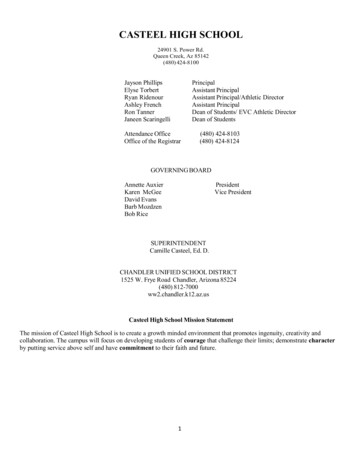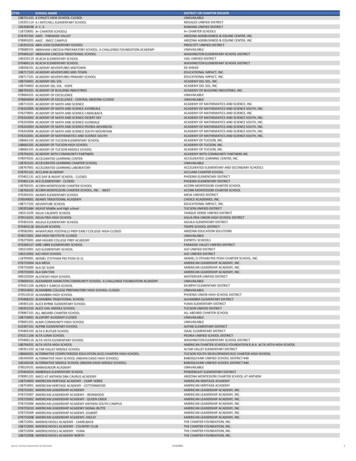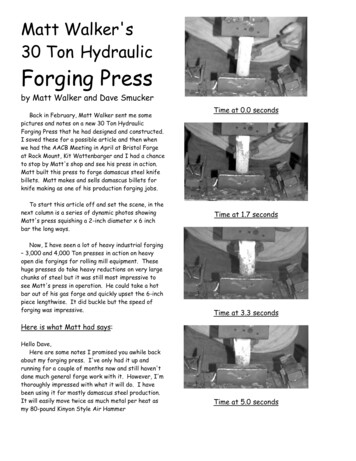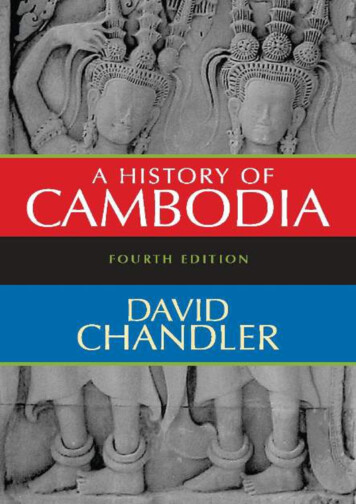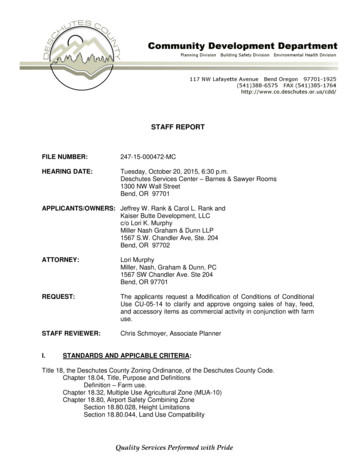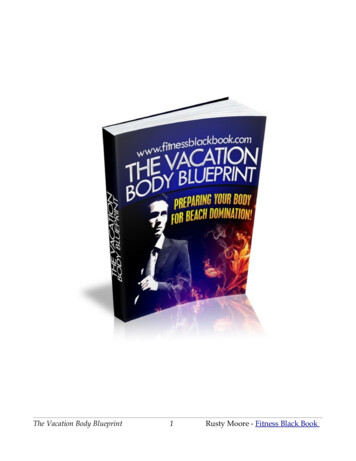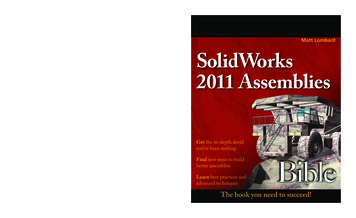
Transcription
13-SESSION BIBLE STUDY FOR TEENS
JAM E SFAITHWORKSMATT CHANDLERLifeWay Press Nashville, Tennessee
EDITORIAL TEAMGROUPS MINISTRY PUBLISHINGPublished by LifeWay Press 2018 The Village ChurchMichael KelleyDirector, Groups MinistryNo part of this book may be reproducedor transmitted in any form or by anymeans, electronic or mechanical, includingphotocopying and recording, or by anyinformation storage or retrieval system,except as may be expressly permittedin writing by the publisher. Requests forpermission should be addressed in writing toLifeWay Press ; One LifeWay Plaza;Nashville, TN 37234.Brian DanielManager, Short-Term DiscipleshipJoel PolkEditorial Team LeaderJeremy MaxfieldWriterReid PattonContent EditorDavid HaneyProduction EditorJon RoddaArt DirectorSTUDENT MINISTRY PUBLISHINGBen TruebloodDirector, Student MinistryJohn Paul BashamManager, StudentMinistry PublishingKaren DanielEditorial Team LeaderJeff BelcherContent EditorStephanie LivengoodContent SpecialistAmy LyonGraphic DesignerISBN 978-1-5359-0918-1 Item 005804601Dewey decimal classification: 227.91Subject headings: BIBLE. N.T. JAMES—STUDY AND TEACHING \ FAITH\ CHRISTIAN LIFEScripture quotations are taken from theESV Bible (The Holy Bible, English StandardVersion ), copyright 2001 by Crossway, apublishing ministry of Good News Publishers.Used by permission. All rights reserved.To order additional copies of this resource,write to LifeWay Resources CustomerService; One LifeWay Plaza; Nashville, TN37234; fax 615-251-5933; phone toll free800-458-2772; order online at LifeWay.com;email orderentry@lifeway.com; or visit theLifeWay Christian Store serving you.Printed in the United States of AmericaStudent Ministry PublishingLifeWay ResourcesOne LifeWay PlazaNashville, TN 37234
CONTENTSAbout the Author 4Introduction 5How to Use 6An Overview of James 8WEEK 1Brother/Servant 10WEEK 2Trials/Temptations 22WEEK 3Hearer/Doer 34WEEK 4Judgment/Mercy 46WEEK 5Faith/Works 58WEEK 6Blessings/Curses 70WEEK 7False Wisdom/True Wisdom 82WEEK 8Worldliness/Godliness 94WEEK 9Arrogance/Humility 106WEEK 10Oppressor/Laborer 118WEEK 11Suffering/Comfort 130WEEK 12Faithful/Faithless 142WEEK 13Wanderer/Restorer 154Leader Guide 166
ABOUT THE AUTHORMATT CHANDLER serves as the lead pastor of teaching at The Village Churchin the Dallas/Fort Worth metroplex. He came to The Village in December 2002and describes his tenure as a replanting effort to change the theologicaland philosophical culture of the congregation. The church has witnessed atremendous response, growing from 160 people to more than 11,000, includingcampuses in Flower Mound, Dallas, Plano, and Fort Worth.Alongside his current role as lead pastor, Matt is involved in church-plantingefforts both locally and internationally through The Village, as well as in variousstrategic partnerships. Prior to accepting the pastorate at The Village, Matt had avibrant itinerant ministry for more than ten years that gave him the opportunity tospeak to thousands of people in America and abroad about the glory of God andthe beauty of Jesus.Matt is the author of Take Heart; To Live Is Christ, to Die Is Gain; Minglingof Souls; The Explicit Gospel Bible study (LifeWay, 2012); and The Apostles’Creed Bible study (LifeWay, 2017). He’s also a coauthor of Creature of the Word(LifeWay, 2012).Other than knowing Jesus, Matt’s greatest joy is being married to Lauren andbeing the dad to their three children: Audrey, Reid, and Norah.4
INTRODUCTIONFaith works. This is the message of James. James shows that faith and works arenot enemies but friends. Without faith, we could never find the strength to trustGod. We would never be able to see above the trials we meet and keep our eyesfocused on the King. We don’t work to be saved; we work because we’re saved.Without faith, our works are empty service. Without works, our faith is dead. Worksreveal the genuineness of and enrich our faith.To illustrate this tension, James compares the person who has faith butnot works to the person who stares at his face in the mirror but then forgets theway he looks as soon as he turns away. But with faith that works, we stay onthe journey of being sanctified, knowing we’ll be perfected once we reach theother side.The repeated cry of James is that faith apart from works can neverbe sustained. We should proclaim this truth because faith makes us doers ofthe Word, not just hearers. Faith keeps us humble, not proud; directs us to bless,not to curse; and causes us to show mercy, not judgment. Faith leads us to truereligion that extends itself in favor toward others. Faith causes us to preach thegood news to every tribe, tongue, and nation. Faith motivates us to worship ourGod for all eternity. This is the message of James: Faith works. 5
HOW TO USEJames: Faith/Works provides a guided process for individuals and small groups towalk through the New Testament Book of James. This Bible study book includesthirteen weeks of content, each divided into two major sections: “Group Study”and “Personal Study.” A leader guide is also provided to prepare those who areleading groups through this journey.GROUP STUDYRegardless of the day of the week your group meets, each week of contentbegins with a group session. This group session is designed to last sixty minutes,with approximately twenty minutes dedicated to video teaching and another fortyminutes to group discussion.Each group study uses the following format to facilitate simple yet meaningfulinteraction among group members, with God’s Word, and with the video teaching.STARTThis section includes questions to get the conversation started, a review of theprevious week’s study to reinforce the content, and an introduction to the newcontent for the current week.WATCHThis page includes key points from the video teaching, along with space for takingnotes as participants watch the video.DISCUSSThis page includes discussion questions that guide the group to respond to thevideo teaching and to relevant Bible passages.6JAMES
PERSONAL STUDYTwo personal studies are provided each week to take individuals deeper intoScripture and to supplement the content introduced in the group study. Withbiblical teaching and interactive questions, these sections challenge individualsto grow in their understanding of God’s Word and to make practical applicationto their lives.LEADER GUIDEOn pages 166–173 at the back of this book, you’ll find a leader guide that willhelp you prepare each week. Use this guide to gain a broad understanding ofthe content for each week and to learn ways you can engage with members atdifferent levels of life-changing discussion. 7
AN OVERVIEW OF JAMESThe Book of James is a wonderful companion piece to Jesus’ teachings asrecorded in the four Gospels. James has a strong ethical emphasis that’sconsistent with the moral teachings Jesus gave to His disciples. James alsomirrors the sometimes harsh rebukes Jesus spoke against religious hypocrisy.Like Jesus’ teachings, the Book of James is a source of both exhortationand comfort, reproof and encouragement. While known for being extremelypractical, James contains some of the most profound theological truths in theNew Testament.AUTHOR. James is named as the author in 1:1. A number of New Testamentpersonalities were named James, but only three are candidates for theauthorship of this book. James the son of Zebedee died in AD 44, too early tohave been the author. No tradition names James the son of Alphaeus (Mark 3:18)as the author. This leaves James the brother of Jesus, also called James theJust (Mark 6:3; Acts 1:14; 12:17; 15:13; 21:18; 1 Cor. 15:7; Gal. 2:9,12), as the mostlikely candidate.Scripture identifies James as the brother of Jesus in Matthew 13:55; Mark 6:3;and Galatians 1:19. Though he wasn’t a follower of Christ during His earthlyministry (John 7:3-5), a post-resurrection appearance convinced James thatJesus is indeed the Christ (Acts 1:14; 1 Cor. 15:7). James later led the Jerusalemchurch (Gal. 2:9,12), exercising great influence there (Acts 1:14; 12:17; 15:13; 21:18;1 Cor. 15:7; Gal. 2:9,12).BACKGROUND. James was probably written between AD 48 and 52, thoughnothing in the epistle suggests a more precise date. James’ death in AD 62 or 66means the epistle was written before this time. Similarities to Gospel traditionsand Pauline themes are suggestive. If Mark was written around AD 65 and timeis allowed for the events of Acts 15 and 21 to have occurred between Paul’s firstand second missionary journeys, then a date between AD 48 and 52 seemsmost likely.8JAMES
James led the Jerusalem church. The reference to “the twelve tribes in theDispersion” (Jas. 1:1) suggests the letter was written to Jewish Christians livingoutside Israel. The reference to a synagogue in 2:2 also suggests that his audiencewas Jewish Christians. References to their circumstances (for example, oppressionby wealthy landowners, 5:1-6) could refer to congregations anywhere in theRoman Empire.MESSAGE AND PURPOSE. As a general epistle, James was addressed to abroad audience (Jewish Christians) rather than a specific audience (for example,Christians at Ephesus only). There’s an obvious concern to address internal andexternal difficulties that Jewish Christian congregations faced. Externally, theywere facing trials (1:2), particularly oppression from wealthy landowners. It doesn’tappear that the oppression was religious in nature. Internally, it appears thatdissension was caused by a lack of self-control (1:13-17), uncontrolled speech, andfalse teachings that led to a misunderstanding of true religion (1:19-27; 2:1-4; 3:1-8),favoritism toward the wealthy (2:1-13), and selfish ambition that opened the door tomurder and criticism (4:1-12).James addressed these issues primarily through the application of principlesdefined by the Old Testament wisdom tradition. The solutions he named reflectedthe wisdom from above that comes from “the Father of lights” (1:17), who generouslygives wisdom to those who ask for it. Wisdom is required for proper speech inworship and for determining who ought to teach (1:19-27; 3:1-8). Wisdom is alsoneeded to avoid internal conflicts that create dissension within congregations(3:13-18; 4:1-12). The theme of faith in action is also important (1:19-27; 2:14-26); Jamesdemonstrated that faith that doesn’t express itself in good works is useless. Anothertheme of the epistle is ethics, especially social justice (2:1-13; 4:1-12; 5:1-12).STRUCTURE. The Book of James is a letter (an epistle), though only the greetingconforms to the ancient Greek form exemplified in Paul’s letters, especially Galatians.The Book of James has also been compared to Old Testament wisdom literature.Although James contains wisdom elements, such as comparing the wisdom ofthe world with the wisdom that comes from God, it also contains exhortationsand prophetic elements that aren’t common to wisdom literature. 9
WEEK 1BROTHERSERVANT
GROUP STUDYSTARTWelcome everyone to Week 1 of James: Faith/Works.Ask participants to introduce themselveswith quick answers to the following question.What’s one phrase, nickname, or fact that summarizes who you are?Today we begin a study of the Book of James. We’ll start by simply looking at oneverse—the introduction to the letter. Because all Scripture is the inspired Word ofGod, we can learn a lot from a greeting. James’ introduction identifies the themeand tone of the entire letter.Have you ever studied a book of the Bible? If so, what was it? Howdid you see the book differently after you completed your study?James is a highly practical letter to Christians in the early church, but it’srooted in deep faith and rich theology. Maybe more than any other book in theNew Testament, James emphasizes the application of Christian belief.To prepare for the Week 1 video, pray that God willhelp each person understand and apply this truth:James had a unique earthly relationship with Jesus, but hisletter clarifies what the Christian life should look like for allbelievers. The Book of James is filled with practical wisdom,calling us to live out genuine faith through good works.Week 111
WATCHUse the space below to take noteswhile you watch the Session 1 video.1.You need to what the Bible is saying about God’sinterest in you.2. The sovereign King of Glory is not a . He is a .3.God leads us into the possible life by revealing to us whoHe is.4.It is and alone that will satisfy the longings of our heart.5. God is so about God that the Bible itself, first and foremost, is about. It’s not about .6. God makes known to us the .7.When God says, “Thou shalt not,” He’s not trying to you of anything.8.and are the two ways Goddraws us into the fullest life possible.9.God does not promise that we will suffer, but rather that He will bewith us in our suffering, and He will it.10. Trials, suffering, and difficulty can be expected. They do notthe heart of God.11. This is about not .12. and will not satisfy the soul.ANSWERS: 1) personalize; 2) taker, giver; 3) fullest; 4) God, God; 5) God, you;6) path of life; 7) rob; 8) Salvation, obedience; 9) not, redeem; 10) surprise; 11) progress, perfection;12) Riches, comfort12JAMES
DISCUSSUse the following questions to guideyour discussion of the video.Three things to pay special attention to in the Book of James:1. The Book of James was written to Jews who were dispersed fromJerusalem because of persecution. We can also expect to suffer for our faith,but God has promised to be with us.2. The Book of James reveals that the Christian life is about progress,not perfection.3. The Book of James reminds us again and again that the things of the worldwill never satisfy.How did James describe himself as he opened his letter in James 1:1?James, a servant of God and of the Lord Jesus Christ,To the twelve tribes in the Dispersion: Greetings.JAMES 1:1Why is it significant that James, as a Jew, mentioned both God and Jesus?What does the word servant mean in this verse? What does it tellus about James that he referred to himself this way? What does itsuggest about the content of his letter? About his perspective on theChristian life?The thief comes only to steal and kill and destroy. I came that theymay have life and have it abundantly.JOHN 10:10How is the abundant life Jesus promise in John 10:10 related to the ideaof Christians obeying Him as Lord?Week 113
Do you think of God as being more concerned with either yourobedience or your joy? How does your perspective on God affect yourdaily life?Your eyes saw my unformed substance;in your book were written, every one of them,the days that were formed for me,when as yet there was none of them.PSALM 139:16How does believing that God created you and knows everything aboutyou affect your willingness to obey Him?Matt highlighted three major themes that will run throughout our study of James:1. Trials, suffering, and difficulty can be expected. They never surprise God.2. God desires progress, not perfection, as we follow Jesus.3. Riches and comfort will never satisfy the soul.As Matt highlighted the themes found in the Book of James, whichones stood out most to you? Why?Which of these common struggles in the Christian life most oftenthreatens to steal, kill, and destroy your joy and satisfaction?On a scale of 1 to 10, with 1 being spiritually dead and 10 being fullyalive in joyful obedience, how would you rate your relationship withJesus? Explain your rating.14JAMES
Progress, not perfection, is James’ message on faith and works. Sanctification—being shaped in the likeness of Jesus—is an ongoing work of the Holy Spirit in yourlife. You hear the Holy Spirit’s voice as you read the pages of Scripture.Our goal is to move closer to being fully alive in Christ by the end of ourthirteen-session journey through the Book of James.What are your hopes and expectations for studying the Book of James?What remaining questions or comments do you have about thissession’s video teaching or discussion?What was challenging, convicting, encouraging, or timely for yourcurrent circumstances?Close in prayer.PRAYER REQUESTSWeek 115
PERSONAL STUDYPART 1: BROTHERIf you could gather all of the people who have ever lived—every person in history—James would stand out from the crowd as a man with a unique relationship to Jesus.The author of the biblical book bearing his name was also Jesus’ little brother.Technically, James and Jesus were half brothers. They shared an earthly mother,Mary, but James’ biological father was Joseph, while Jesus was born of theHoly Spirit. He was the only begotten Son of God. Joseph was Jesus’ earthly father,but he and Jesus weren’t biologically related. However, James and Jesus werebiologically related.How’s that for sibling rivalry? It’s not tough to imagine the mixed feelings Jamesprobably experienced growing up with the world’s greatest brother—literally. Jesuswas God’s gift to humanity.As Jesus’ ministry began to grow, opinions about Him also grew increasingly dividedamong the public and even in His own family.Read Mark 3:13-19. List the names of Jesus’ twelve disciples.Maybe you never thought too much about it, but Jesus’ own family members werenoticeably absent. Look at their reaction in the next verses.Read Mark 3:20-21. What did Jesus’ family think about Jesus and why?16JAMES
A few chapters later Jesus told the disciples He chose these words:A prophet is not without honor, except in his hometown and amonghis relatives and in his own household.MARK 6:4Read Mark 6:1-4. Why was it difficult for people who knew Jesus tobelieve in Him?Have you found spiritual conversations to be easier or more difficultamong nonbelieving family and friends? Why?Jesus’ own family, including James, thought He was getting carried away with thewhole religious thing. Put yourself in their shoes, and their reaction seems prettyreasonable. In Mark 3, Jesus’ small-group discussion had gone so long and drawnso many people that He wasn’t even able to eat. His family thought He was crazy!Picture the scene. James and his family showed up to talk some sense into Hisoldest brother, but the house was so packed that they couldn’t even get in tosee Him. Frustrated and desperate, they had to ask someone to ask someone toask Jesus to come out. On top of that, religious leaders among the crowd wereaccusing Jesus of being demon-possessed (Mark 3:22).Read Mark 3:31-35. Why would Jesus’ words have been shockingin that moment?What changed about James’ relationship with Jesus after he believedin Him? What’s the difference between knowing about Jesus and trulyknowing Him?Week 117
When have you heard or spoken a difficult truth that encouragedsalvation or spiritual growth?We’re also still likely to do the same thing Jesus’ family did. Especially in ourcomfortable American Christianity, it’s easy to discourage people from being toodevoted. Maybe you’ve had an ongoing conversation in your mind about howseriously you should take the whole Jesus thing. What if your faith meant a changein attitude, lifestyle, or spending? What if it meant sacrifice or difficulty? What if itmeant doing something that made the rest of the world, even the people closest toyou, think you’d lost your mind?James was literally related to Jesus, but Jesus said that wasn’t enough. The rightfamily can’t save you. People often say things like “I’ve always been a Christian,”or assume they are because they were born into a family that occasionally wentto church, celebrated Christmas, and maybe even observed Easter. But rememberJesus’ words to his own mother and brothers.Jesus was abundantly clear. Your family can’t save you. A relationship with Godis a matter of personal faith expressed through active obedience to the will of God.Conclude this part of this week’s personal study by praying aboutthe following. Have I been relying on my upbringing, my family, or my ownreasoning to shape my view of God? Does total faith in Jesus seem unreasonable? Are certain areas ofmy life currently off limits to God? Am I seeking to know and do the will of God? How will I respond to Jesus today?Ask God to reveal Himself to you as you continue studying His Wordso that you can know and do what pleases Him.18JAMES
PART 2: SERVANTTruly, truly, I say to you, unless one is bornagain he cannot see the kingdom of God.JOHN 3:3This was a radical statement among the Jews—God’s chosen people. Jesus tolda religious leader the same thing He told His own mother, Mary, and His ownbrothers, including James. Biology isn’t enough. Tradition isn’t enough.Read John 3:1-21. In your own words, summarize Jesus’ teachingon belief.We can never be good enough. We need the cross. We need the resurrection.We need Jesus. We’re saved by faith alone, by grace alone, through Christ alone.When Jesus explained our need to be born again, He concluded by sayingsaving faith must be lived out in active obedience to the will of God our Father.This idea sounds familiar.How did Jesus say our acts of obedience relate to our faith?The people of God are born again into the Heavenly Father’s family. We needa change of heart in order to experience abundant, eternal life with the King.Read Ephesians 2:1-10 to see how the gospel becomes effective in our lives.Everyone is or was once obedient to:Why is this an important truth for believers?Week 119
You’re saved by:You’re made for:Why are these important truths for believers?You haven’t been saved by your good works, but it’s absolutely clear throughoutScripture that you’ve been made for good works. Men and women who’ve beenborn again confidently walk in the light of Christ, doing the good works God hascreated them to do.Faith works. Faith is sufficient for salvation. Faith is seen in good works. God doesthe saving. You do the serving.The Book of James begins with the author identifying himself by name and as“a servant of God and of the Lord Jesus Christ” (Jas. 1:1). He was defined by hisrelationship of active faith and obedient service.On a scale of 1 to 10, how likely would someone be to identify you as aservant of uld never cross their mind The most obvious thing about meHow would you explain the difference between calling yourself aChristian and being a servant of Jesus Christ?We can easily miss what’s going on here in our English translations. The originalGreek text of the New Testament uses James’ Hebrew name: Jacob. Not onlywould the original audience know James, the brother of Jesus and the leaderin the Jerusalem church, but they would also catch the author’s symbolicidentification with his audience.20JAMES
In biblical history Jacob was the father of the Jewish nation. After he wrestled withGod, God renamed him Israel. Jacob had twelve sons who became the twelvetribes of Israel (Gen. 32:28; 35:9-11,22-26).Later in biblical history, the Assyrians conquered the Northern Kingdom of Israel,and the Babylonians then conquered the Southern Kingdom. This period ofcaptivity and oppression came to be referred to as the dispersion—the sameword James used to address the early church audience: “to the twelve tribes inthe Dispersion” (Jas. 1:1).This simple form of address has profound significance. After Jesus’ ascension, theChristian church was almost immediately persecuted and scattered from Jerusaleminto Judea and Samaria, spreading the gospel to the Gentiles (Acts 1:8; 8:1).Just as Jesus taught that the family of God is those who do the will of theFather, James presented the church as the faithful —the holy people of God’snew covenant. In Acts 15:13-18, James publicly declared that the Old Testamentprophecy of God’s gathering His remnant was being fulfilled in the church.James encouraged Christians to faithfully serve Jesus as their King. Thisencouragement would have been comforting and countercultural. When Jesus isLord, we pledge our allegiance entirely to Him. This stance will put us at odds withour culture at some point.In what ways does living for Jesus put Christians at odds with culture?The Christian life isn’t easy. Serving God through faithful obedience to Jesus won’tequal health, wealth, and happiness in the earthly sense. In fact, Jesus promisedthat when we truly identify ourselves with Him, we’ll experience persecution(John 15:20). James knew it. The early church knew it. It’s still true today.Prayerfully reflect on this question: Am I willing to identify with Jesusand live for Him, no matter what?[Jesus] said to all, “If anyone would come after me, let himdeny himself and take up his cross daily and follow me.”LUKE 9:23Week 121
ARE YOU LIVINGA FAITHFUL LIFE?We don’t work to be saved; we work because we are saved.But without faith, our works are empty service. And withoutworks our faith is dead. This dynamic relationship is the heartof this study of the Book of James.Faith keeps us humble, not proud; directs us to bless, not tocurse; and causes us to show mercy, not judgment. Faith leadsus to true religion that extends itself in favor toward others. Faithinspires us to preach the good news to every tribe, tongue, andnation. Faith motivates us to worship our God for all eternity.This is the essential message of James: Faith works.This Bible study will help students: gain a better understanding of the Book of James andapply its practical wisdom. learn how to deal with trials and temptations,understanding that enduring adversity ultimatelybrings joy. learn to extend mercy, not harsh judgment, to others.ALSO AVAILABLE / James Leader Kit includes resources forleading a thirteen-session group study: one Bible study book,two DVDs, and extra leader resources.DIGITAL RESOURCES / eBook and digital leader kit availableat LifeWay.com/JamesStudy
James: Faith/Works provides a guided process for individuals and small groups to walk through the New Testament Book of James. This Bible study book includes thirteen weeks of content, each divided into two major sections: Group Study and Personal Study.

